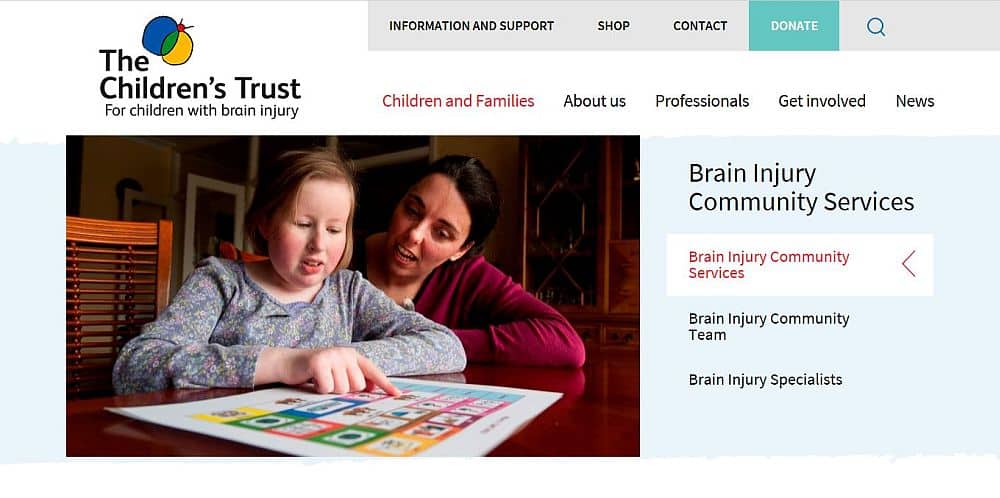Community-based service to help children with brain injury launches

A free to access UK-wide Brain Injury Community Service has launched to maximise children’s participation in everyday life following a brain injury.
Delivered by The Children’s Trust, the UK’s leading charity for children with brain injury and neurodisability, the service offers children with an acquired brain injury assessment and clinical support after they have been discharged from hospital and at key stages of childhood.
Even a minor head injury or brain-related illness, such as stroke or encephalitis, can impact brain function, resulting in problems with memory and thinking, headaches, fatigue and depression. Left unsupported, the difficulties children and young people with acquired brain injury face can have a long-term impact on their academic, social and personal development. The Children’s Trust Brain Injury Community Service ensures the right support is provided at the right time.
Funded by charity donations, clinical screening and advice is carried out by specialist clinicians who visit the child and family in their home and at school; and make referrals to local statutory services if required. Where local services are not available, the Brain Injury Community Service clinicians will offer community-based neurorehabilitation packages, working with the child in their own environment. These more specific packages will be funded by clinical commissioning groups, local authorities or by parents themselves. A long-term monitoring register will ensure contact is made at key stages of development to determine whether intervention is required later in the child’s life.
Katy James, Head of The Children’s Trust Brain Injury Community Service, said: “Things that come naturally to children as they get older such as getting organised for school, completing tasks or simply fitting in with peer groups, can present real challenges for a child or young person with acquired brain injury, and this can lead to isolation, low mood and often depression. The Brain Injury Community Service will provide clinical support tailored to the child and family’s needs when they need it, to help children with acquired brain injury take as a full a part in their everyday life as possible.”
For more information go HERE

